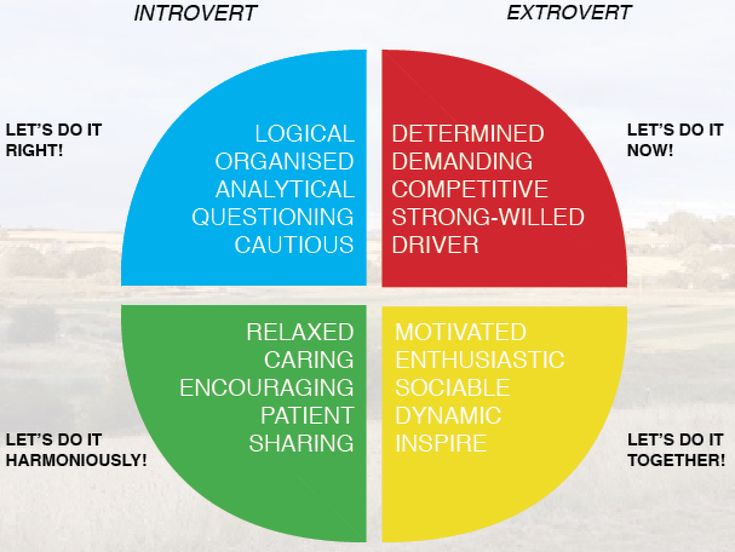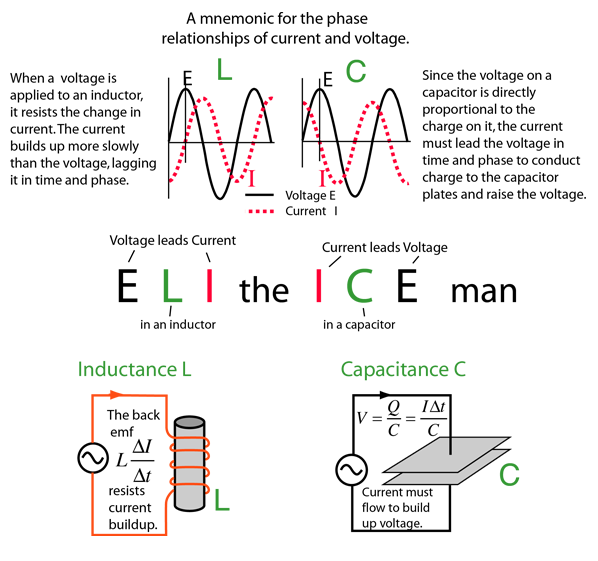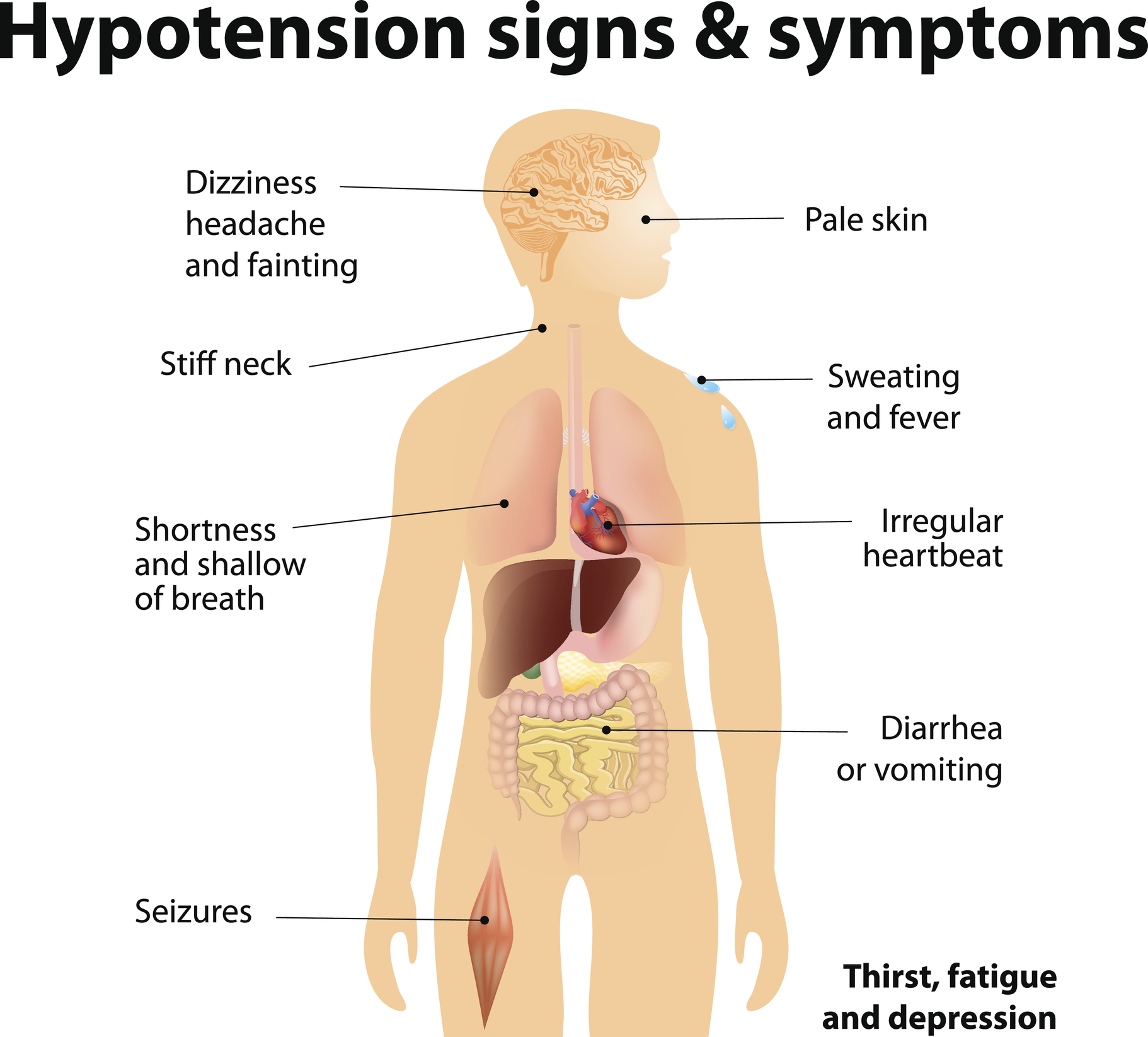Introverts in sports
Are introverts underdogs in the sports world?
Are you one of the introverted athletes who feel like you should be louder or chattier in sports? But you just don’t like the loud environment? Do you think shyness and introversion is just the same? Did you know that extroverted athletes can also be shy? Let’s dig in to personality in sports and today especially in introverts. (And next week we change turns!)
This game starts with a warm up about the myths and assumptions about introverts, the actual game is about understanding the strengths, behavior and qualities of introverts and the cool down is the science perspective about successful personalities in sports. So yeah, you better stick around until the end 😉
INTROVERTS – DEFINITIONS AND EXAMPLES
First we can start with the myth that if anyone still thinks that introverts don’t need human connections, ditch that craziness fellow human! The very big, fat majority of human beings are yearning for human connections to feel that they belong.
Introvert personality does not mean that they would not want to have a connection with other people too.
It most often means instead that it consumes more energy for them to be social in new social settings and they need to rest after those situations to recover whereas the extrovert personality gains more energy from the same situations and they find non-stimulating environment boring and even stressful.
Secondly, introversion is not the same as shyness. Yes many introverts are also shy, but even extroverts can be shy. Shyness definition is “the fear of negative judgement” and introversion is “a preference for quiet, minimally stimulating environment” (Susan Cain, https://www.quietrev.com/are-you-shy-introverted-both-or-neither-and-why-does-it-matter/). So let’s get to know the people first before assuming them to be something. Knowledge beats the assumptions anyways and always.
Thirdly, ambivert is a mix of introvert and extrovert so life is not black and white.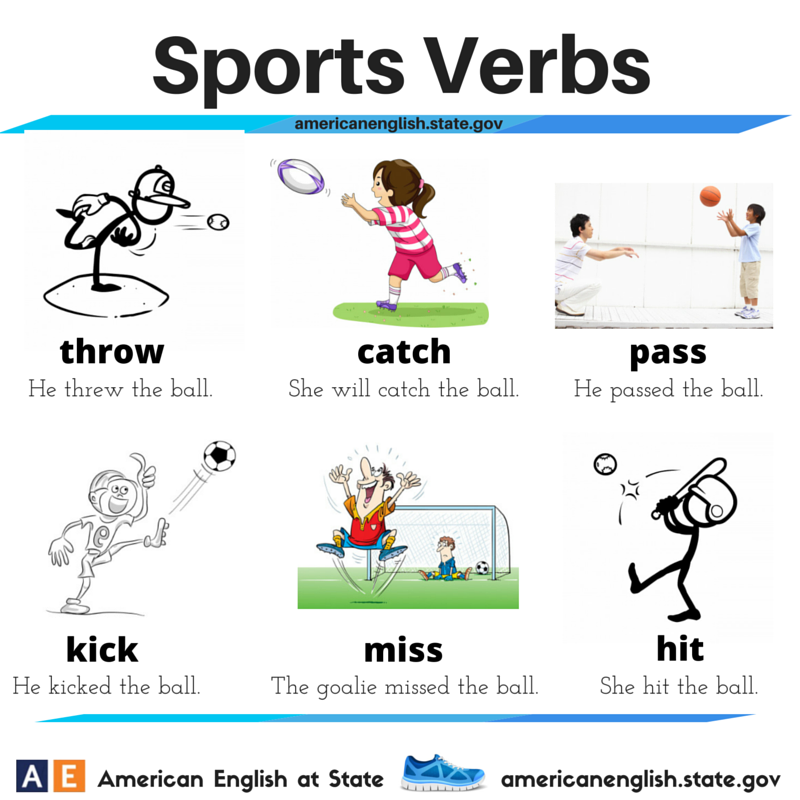 Nor is this. You can have traits of both, you can be mostly introvert or mostly extrovert with pieces of the other. But today, we celebrate introverts!
Nor is this. You can have traits of both, you can be mostly introvert or mostly extrovert with pieces of the other. But today, we celebrate introverts!
If you recognize yourself as an introvert, and have felt that you are not as worthy or valued in the sports world because you are more quiet, listen to this. And maybe write it in your forehead. Or in your hand so you can actually see it. These two points are coming at you and fast, you better catch them!
- Your opinion matters and it is equally important as anyone else’s even if other people are more vocal about their opinions.
- Being worthy has nothing to do with the amount of words coming out of your mouth. Your existence in this world makes you worthy.
If you need more proof on those, keep reading.
TASK- AND PEOPLEORIENTED INTROVERT
Let’s go through a sports season from a shy introvert’s perspective.
So you are more quiet or shy than the rest and you already have recognized that. So the first practice in a new club, maybe new teammates if you’re a team sport athlete, and just new situation overall might make you anxious.. “What if they ask me to talk in front of everyone? I don’t even know anyone. I don’t want to,
everything is so new right now.”
So the first practice in a new club, maybe new teammates if you’re a team sport athlete, and just new situation overall might make you anxious.. “What if they ask me to talk in front of everyone? I don’t even know anyone. I don’t want to,
everything is so new right now.”
You are taking time to monitor the environment when you arrive, making notes in your mind about how things are looking, how people are behaving but you are not likely to start the discussions with a new teammate or coach right away. You rather wait that someone comes up and talk with you.
If no one asks you anything, you might think that a) “Phew, made it without talking to anyone, what a relief!” or b) “Well, I wonder what’s wrong with me, why no one was talking to me?”.
There are many other scenarios for sure as well but let’s play with these two. The first one (a) tells that talking is not your favorite thing to do. You might enjoy silence and listening to others much more. You might want to be left alone to do things and you feel like that is when you are at your strongest.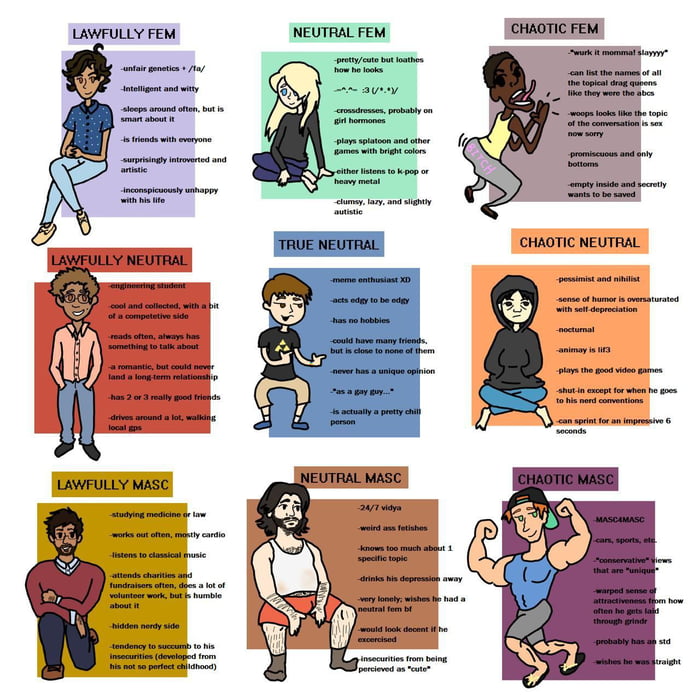 You might be one of those lonely wolves who enjoy tasks and facts more than people.
You might be one of those lonely wolves who enjoy tasks and facts more than people.
The second scenario (b) might indicate that you wish you would be talking to people more but find it hard to go up to someone and start a discussion even if you would like to have one. So you wait and wish for others to take the first step towards you. You like people, you are just not a chatterbox.
Ok so what is the difference between these introverts?
If you are ms./mr. A and truly just enjoy much more doing things alone and not talking to people unless that is necessary – you might come across a little cold or rude sometimes if you look like you are just avoiding all human contacts. If that is what you wish to do, keep going mate and don’t let this destroy your vibe 😉 Just keep in mind that in sports and life you might need other people to succeed as well and/or maybe you wish to find that true connection with someone. You don’t need 124 friends, but you might need one. If being analytical is your thing, analyze who could be your pillars in this environment and reach out to them.
If you are introvert ms./mr. B and you want to find more connections and friends, you care about people a lot but rather not initiate the discussions. You don’t have to be the first one to talk or connecting with everyone. If nobody came to talk to you but you wished to have a chatting buddy though, maybe you can monitor the environment at first but then take action and talk to someone who looks like a “safe choice” to you?
Think about it this way too, the very first people to talk and connect are often the ones who are just so excited to meet all these new people so they might first just talk with people who are in the same (extroverted) wave length. Nothing to be worried about. You will find those people that you feel more comfortable connecting with later.
Just keep in mind that by reaching out to some people you are closer in making those connections and getting faster to a little more comfortable place than staying silent and feeling isolated for longer (Here is my story of the internal battle whether to open my mouth or not).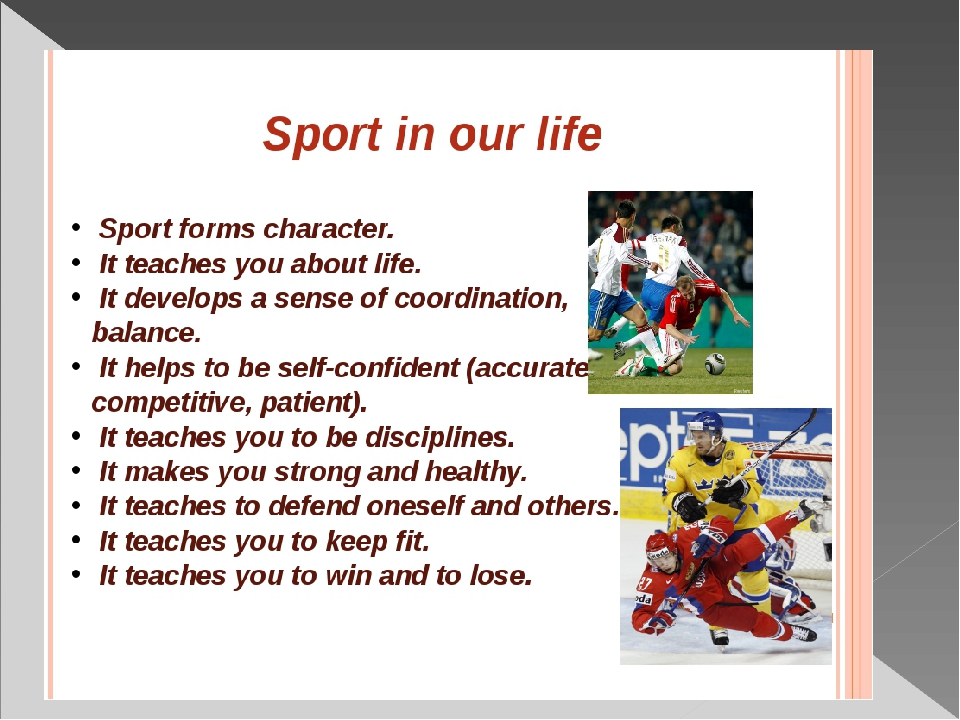 It helps you to integrate to the team or environment little faster which will most likely also help your performance. For example, maybe you will actually tell some feedback to your setter in volleyball about the set rather than stay quiet and keep struggling with the timing ;).
It helps you to integrate to the team or environment little faster which will most likely also help your performance. For example, maybe you will actually tell some feedback to your setter in volleyball about the set rather than stay quiet and keep struggling with the timing ;).
So as an introvert, you can still be a so called people person, people-oriented. Or, maybe people are not your cup of tea and you are likely to be more task-oriented person. Or something in between. But those two will also make a difference in where you find your power and strength.
If you are a people-oriented person, you care about people and that might be one of the reasons you do sports. You should not feel like you need fancy words or the loudest personality or the best jokes in the room to feel more valuable or appreciated. Your way of caring about the people and supporting them is valuable. Actions vs. words. Your actions can speak for you.
Also, you don’t need the spotlight. You are more likely to be at your best in calmer environments where you can focus. You are craving the feelings of belonging and unity more than the spotlight and fame. If you would be put into the spotlight to perform, you would ask if you could do it in pairs and bring your best friend with you.
You are more likely to be at your best in calmer environments where you can focus. You are craving the feelings of belonging and unity more than the spotlight and fame. If you would be put into the spotlight to perform, you would ask if you could do it in pairs and bring your best friend with you.
If you are more task-oriented person who loves details, facts and tasks to do rather than people because people are just more unpredictable, so messy, your strengths are in the tasks naturally. Your performance is top notch when you can focus on the best tactics and techniques you have proven to work, and you can work by yourself.
You probably would hate if the spotlight would be turned to you and you would have to perform your best right now, impromptu. Your question would be simply “why?”. What is the point in this? You might enjoy the recognition of a good performance but being on the speaker podium, let’s say you have to hold a speech after a winning match, um, well, not your favorite thing to do.
(Psst. Whether you are task- or people-oriented person but you feel like the spotlight is harming your performance, I have good news, you can train your mind and focus so you can focus better and perform despite the spotlight. It is trainable).
If we continue our season and we are somewhere halfway through, the task-oriented introvert would be still working alone and enjoying their peace. People stopped bugging you and you find it nice. Some people still try to have a chat with you but most of them have noticed that you like to work alone.
The people-oriented introvert athlete has found some connections in the team or environment. In the second half of the season, you have started to talk more and have been more open with your friends but still might find it hard to speak up in front of other team members. You have found your friends but sometimes it bugs you that you are not friends with everyone or you wonder if some people like you at all.
At the end of the season, the task-oriented introverted athlete is ok with season being over.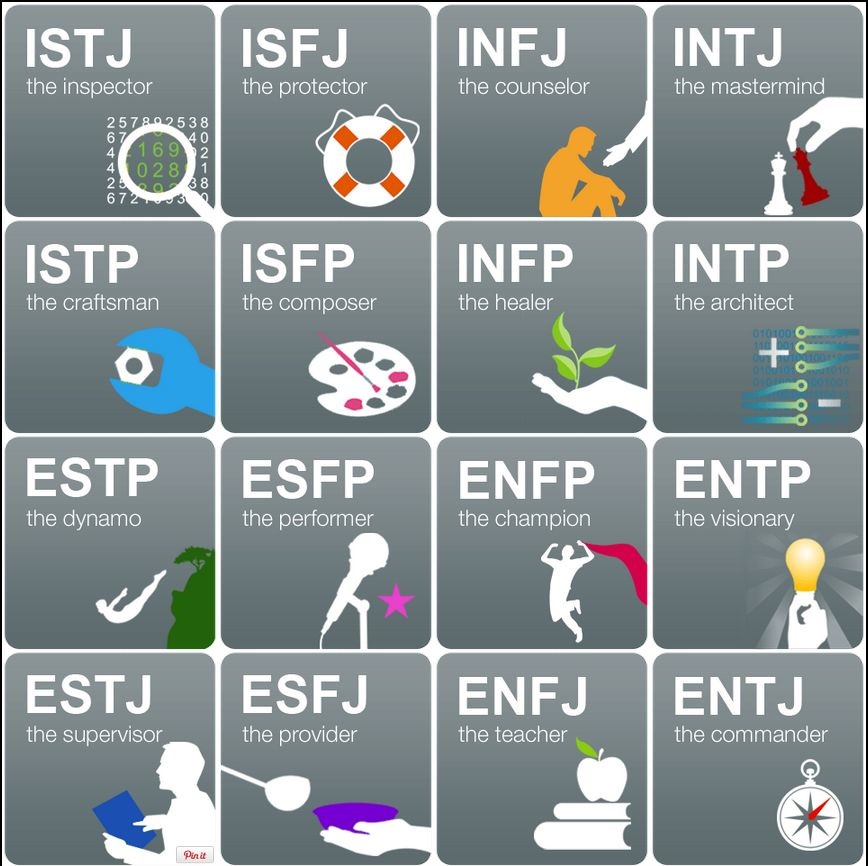 You are not super emotional in the first place so ending a season is just an end of another season and you are busier anyways to analyze the statistics from the season and make fact-based analysis what can you do better for the next season. You say bye to people but you might not miss them, maybe one of them who showed similar enthusiasm towards data as you or who understood you as a person, but other than that… Phew, it feels pretty good to have a little time off from all the noisy, emotional people… 😉
You are not super emotional in the first place so ending a season is just an end of another season and you are busier anyways to analyze the statistics from the season and make fact-based analysis what can you do better for the next season. You say bye to people but you might not miss them, maybe one of them who showed similar enthusiasm towards data as you or who understood you as a person, but other than that… Phew, it feels pretty good to have a little time off from all the noisy, emotional people… 😉
If you are the people-oriented introverted athlete, you are not that happy about the season coming to an end. You know that means that there are gonna be changes again and you might lose your inner circle and have to make new connections all over again. You rather want to continue with this group now that you feel more comfortable with. You might have even talked in one or two meetings at the end of the season and raised your opinion. You made a few more friends at the second half of the season and started to feel more comfortable of being yourself and expressing yourself.
INTROVERTS IN SPORTS
Let’s end this introverted season with three nuggets from the research…
- What comes to coach-athlete relationship and personalities, there are no scientific evidence that some certain personality types in athletes or coaches could predict the depth of the relationship. The most interesting takeaway for me about that article was that the personality traits of an athlete may be important in the quality of the coach-athlete relationship. The research does not say however, that some traits would be better than others. So, it seems to come down to how you use your personality traits to connect and create the athlete-coach relationship.
- In terms of sport selection, yes some of the research suggest that long distance runners and similar sports where you spend a lot of time training by yourself, are more often introverts. But in general, there are more extroverts in the sports. So, both of those factors seem to support the assumption that there are more extroverted people in the team sports.
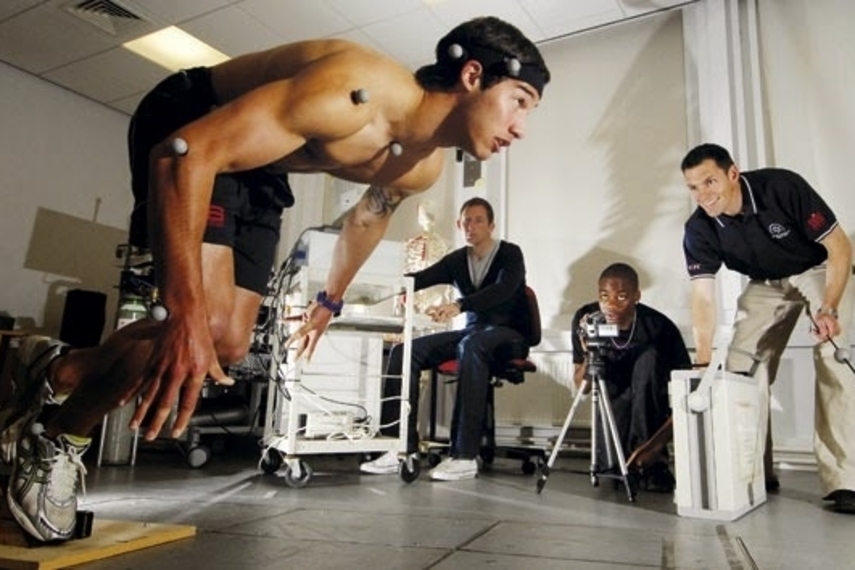
Many of these matters around sports, personality, performance, success etc. boil down to the optimal mix of support and challenge to create optimal results where you are growing but not pushed too hard all the time.
Same with this introversion topic, you want to challenge yourself as an introverted athlete when there are matters that you stand for and you know your opinion matters too. That becomes easier when you define your values and hold yourself accountable on standing behind those. But you also want to understand that you can’t be standing in podiums holding speeches all day long or you are going to be drained sooner than later. You need to support your wellbeing by finding time and place to recharge your batteries in environments that has less stimulations.
Lastly, the good news are that according to research:
- Different personality traits might suit certain sports but there is not just a general, ”sporty” personality that would always be successful or predict success.
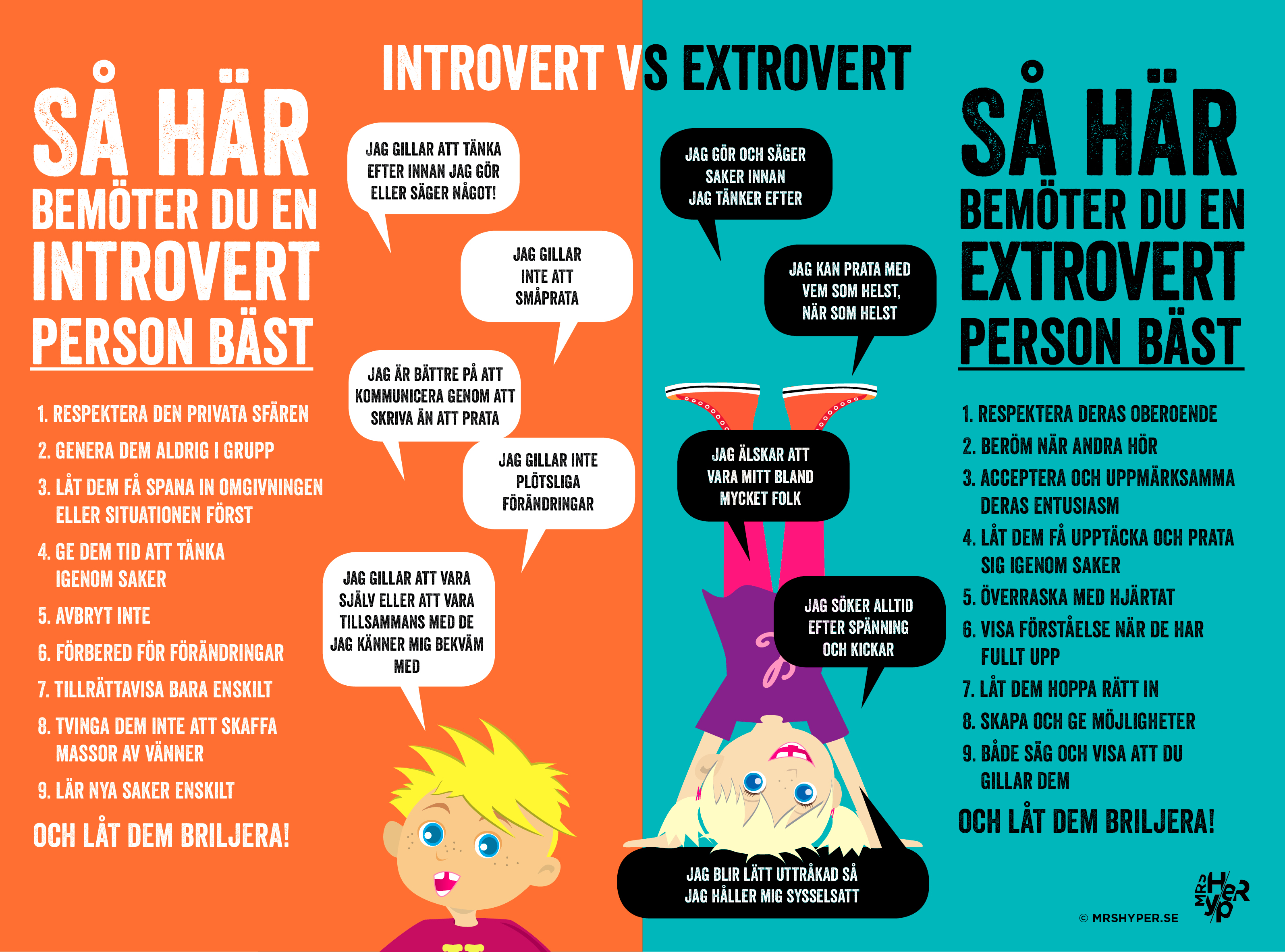
CONCLUSION
So no, I would not say that introverts are the underdogs in sports. Performance matters more and understanding and utilizing their strengths. Extroverts’ opinions might be heard more but introverts have a voice too if we listen. You can find some ways to utilize your personality traits inside the sport even if you are not matching with the pretty general assumptions that sports is for super competitive alpha males or females. There is room for others too.
If you wanna know more about yourself and your behavioral characteristics, I have an idea. Sports Capacity Assessment is created to increase your understanding of your unique strengths and how to better utilize them. If you want to know more, hop on to this site or email me at [email protected]
Thank you for reading<3
Saana
Ps. I also have an awesome email gang that I share a mix of informational and inspirational content about once a week. And you can affect on the content too! You can join HERE.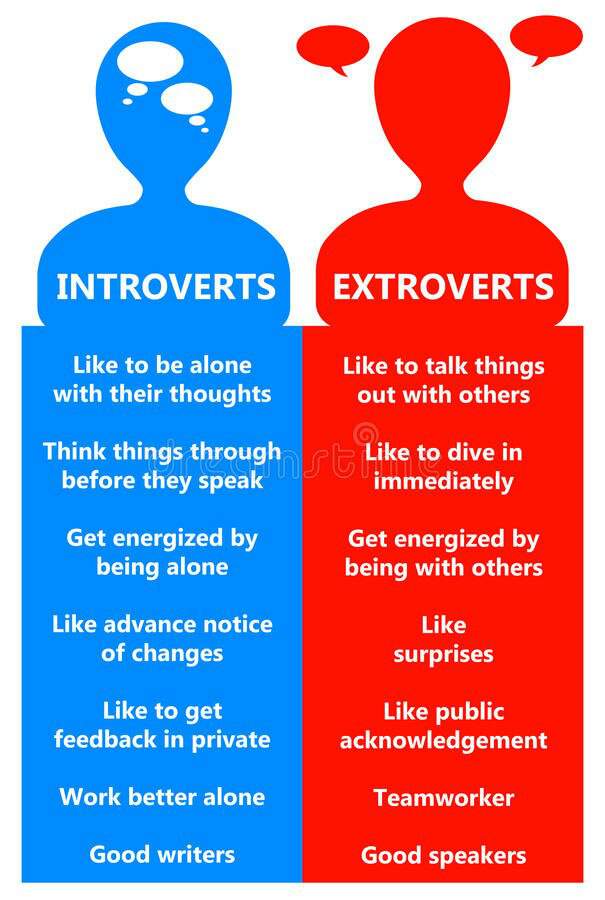
Sources and more information about the topic of the post:
Sports and Personality: Extraversion and Introversion
The role of personality characteristics of athletics in coach-athlete relationships. Sport Psychologist. Jun2019, Vol. 33 Issue 2, p119-128).
Aşçi, F. H., Kelecek, S., & Altintaş, A. (2015). The Role of Personality Characteristics of Athletes in Coach–Athlete Relationships. Perceptual and Motor Skills, 121(2), 399–411. https://doi.org/10.2466/30.PMS.121c17x9
Ruchi Singh. Personality, spiritual exercise and cognitive-behavioural interventions in enhancing sports performance, Indian Journal of Positive Psychology 2014, 5(3), 301-309 http://www.iahrw.com/index.php/home/journal_detail/19#list
Managing introverts and introverts managing: https://www.extendeddisc.org/managing-introverts-extrovert-world/
Extended DISC training material and DISC theory.
Understanding The Introverted Athlete
Understanding The Introverted Athlete
An introvert is not a shy, socially awkward, quiet being who doesn’t like people. They also aren’t people striving to fit in with an extroverted world. Introverts are over-sensitive to dopamine. If around crowds of people for too long, they feel drained. It takes them being alone with their thoughts or crafts to re-energize themselves.
They also aren’t people striving to fit in with an extroverted world. Introverts are over-sensitive to dopamine. If around crowds of people for too long, they feel drained. It takes them being alone with their thoughts or crafts to re-energize themselves.
Extroverts are the opposite, in that they don’t get enough dopamine, and feel energized when they are around crowds of people. They thrive around crowds because they feel drained when they are by themselves. An introvert isn’t necessarily a shy person; they just would rather interact in one on one situation. They don’t waste their time around people putting on acts for a crowd, because they don’t feel the need to do that in social settings. If they are comfortable being in one on one situation, then they want to meet people of substance and value rather than someone who will put on a show for them. It’s in their nature to be aware of these things because it is a huge part of how they function.
So how does this affect the sports world? With personalities like Dwight Howard, Shaq, Chad Ocho Cinco, and other outgoing athletes, it’s easy to overlook the fact that introverted athletes do exists, and are among the elite.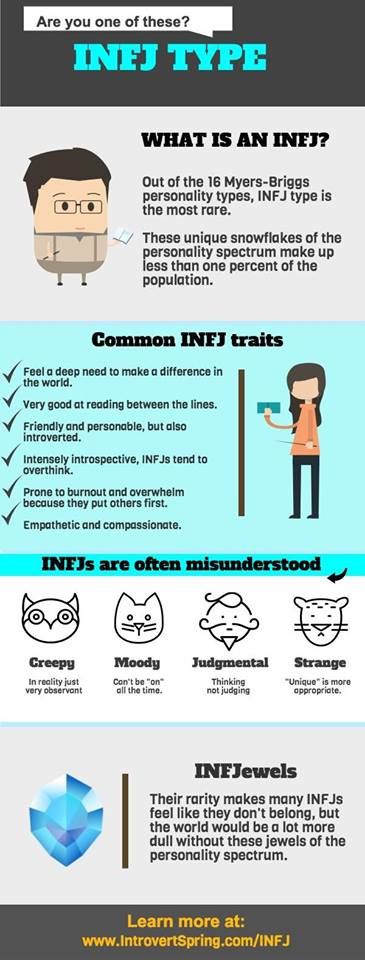 Kobe Bryant, Michael Jordan, Reggie Miller, Jerry West, Larry Bird, are all introverted athletes who undoubtedly contributed an immeasurable amount of value to their sport. Although it was a little easier for them to be introverts because of dominance in their sport, even they often got a bad rap for their relationships with the media and or fans. The smooth talking athlete is admired more because of their good relations and ability to connect with the media and their fans.
Kobe Bryant, Michael Jordan, Reggie Miller, Jerry West, Larry Bird, are all introverted athletes who undoubtedly contributed an immeasurable amount of value to their sport. Although it was a little easier for them to be introverts because of dominance in their sport, even they often got a bad rap for their relationships with the media and or fans. The smooth talking athlete is admired more because of their good relations and ability to connect with the media and their fans.
The perfect example of this manifested in the late eighties where an introverted basketball player by the name of Larry Bird was pitted against a smooth talking showman extrovert by the name of Magic Johnson. Their rivalry was pitted with societal labels such as “black against white” “big city party guy against small town farmer boy”. Reality was, this was a classic showdown of “introvert vs extrovert” The media valued Magic Johnson’s easiness and sense of humor over Bird a man of few words.
Kobe Bryant is seen as a cocky jerk. He gives his professional and honest opinion when answering questions on his profession.Michael Jordan is also often seen as rude when it comes to his relationship with the media. He doesn’t spend too much time occupying our television sets with being on shows, interviews, or even a ton of commercials. Ever since retirement, he’s done pretty well with staying out the public eye.
He gives his professional and honest opinion when answering questions on his profession.Michael Jordan is also often seen as rude when it comes to his relationship with the media. He doesn’t spend too much time occupying our television sets with being on shows, interviews, or even a ton of commercials. Ever since retirement, he’s done pretty well with staying out the public eye.
Athletes with this type of introversion offer a unique dynamic to their sport. They are incredibly focused individuals. They don’t wait for anybody to work on their game, they can go shoot or workout by themselves. Do you think Jerry West skipped out on going to the gym because none of his friends wanted to join him? Larry Bird spent hours in the gym alone with their thoughts, a hoop, and a basketball. The sounds of “swishes” echoed the gym, rather than chatter from others.
If you’re a coach and you have an introvert(s) on your team, support them. It may seem like they don’t fit in, or don’t like their teammates.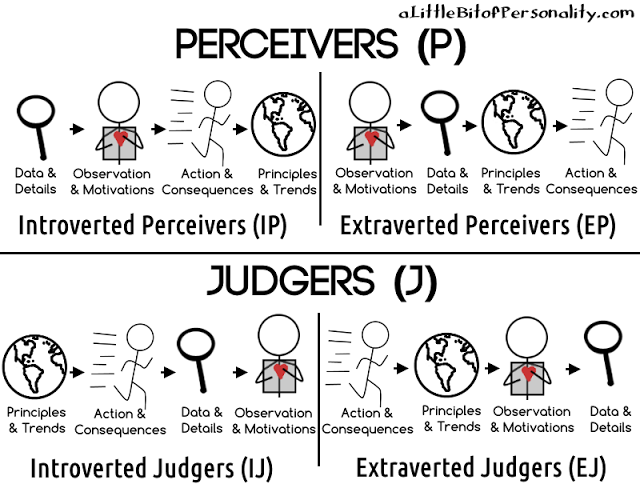 That’s far from the truth. Rather than pressure them to constantly engage in the group setting, take the opportunity to help them get to the next level as an athlete if that is what their desires are. They will put an immense amount of focus into that goal.
That’s far from the truth. Rather than pressure them to constantly engage in the group setting, take the opportunity to help them get to the next level as an athlete if that is what their desires are. They will put an immense amount of focus into that goal.
This is not to say that the introverted athlete is better than the extroverted one. It’s just to say that they are different, and should be supported in different ways.
--Adapted from nextlevelmovment
10 Athletes Who Are Definitely Introverts
- Michael Jordan--Jordan is often listed as the greatest introvert athletes of all time.
- Tiger Woods--Woods has been criticized for being a bad team competitor, but the truth is that the golf legend is simply an introvert.
- Kobe Bryant--Bryant's introverted personality has often been misinterpreted as being cold and standoffish.
- Larry Bird--Bird is shy and introverted. He always shied away from attention when he was playing.
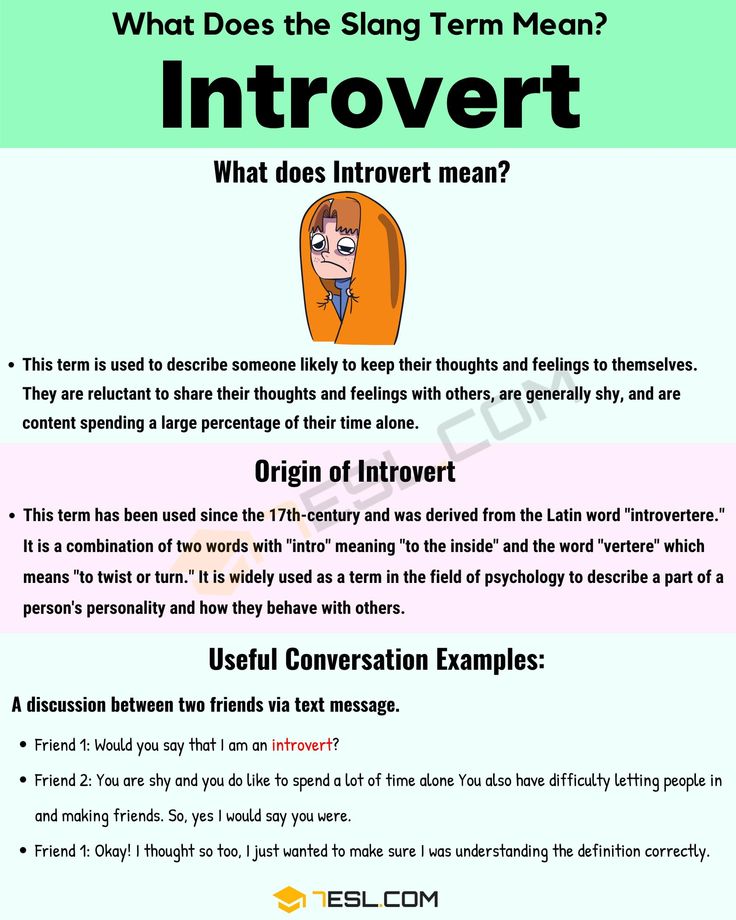
- Derrick Rose--Rose's introverted nature was the subject of a 2012 article in GQ Magazine.
- Jerry West--West was reportedly introverted since childhood.
- Pete Maravich--Maravich has often been classified as a social introvert.
- Reggie Miller--Miller although now a broadcaster was often labeled as a introverted athlete.
- Darrelle Revis--Revis is an introvert and shies away from attention off the field.
- Steve Smith--Smith considers himself to be an "extreme" introvert.
-------------------------------------------------------------------------------------------------------
Quiet: The Power of Introverts in a World That Can't Stop Talking
Sports for extroverts and introverts
Sports, as well as any active physical activity, are extremely important in the life of a modern person, regardless of his occupation.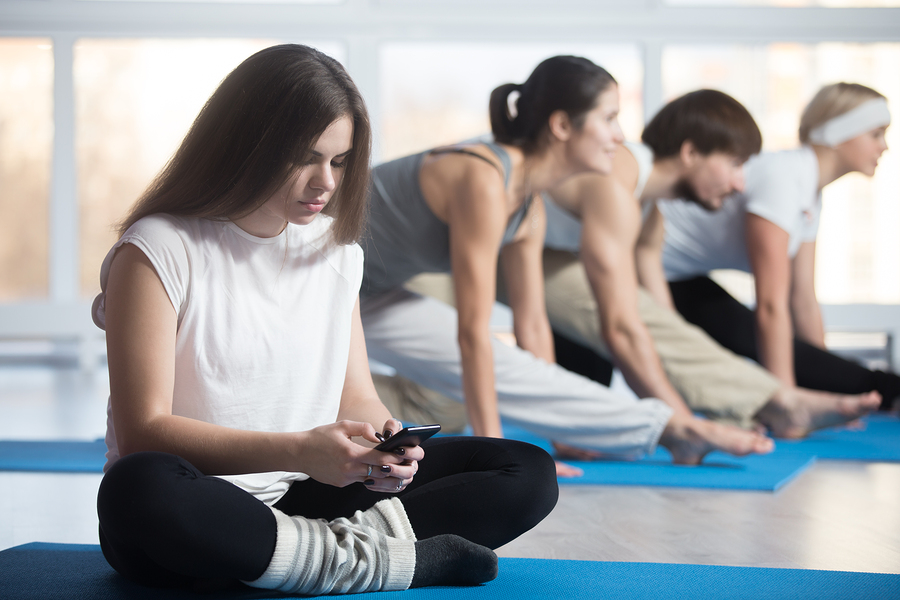 But do not forget that all people are different: comfort for one may have the opposite effect for another. The level of stress during training partly depends on the type of personality of a person: he is an extrovert or an introvert. What kind of sports to do, having certain inclinations of character? We deal with the teachers of the Department of Physical Culture and Sports of the Kazan Cooperative Institute.
But do not forget that all people are different: comfort for one may have the opposite effect for another. The level of stress during training partly depends on the type of personality of a person: he is an extrovert or an introvert. What kind of sports to do, having certain inclinations of character? We deal with the teachers of the Department of Physical Culture and Sports of the Kazan Cooperative Institute.
Each personality type has its own characteristics, which implies some nuances for creating comfortable sports. In this matter, comfort is an important element on the way to regular physical activity.
“These two concepts in the sports field are not entirely acceptable. In sports there is a leader, a captain and other roles. People who do them can be either extroverts or introverts. It cannot be said that one type of activity is suitable for one and contraindicated for others, but there are still certain features of the choice, ”says Nikolay Bobyrev, Candidate of Pedagogical Sciences, teacher at the Department of Physical Culture and Sports of the KCI.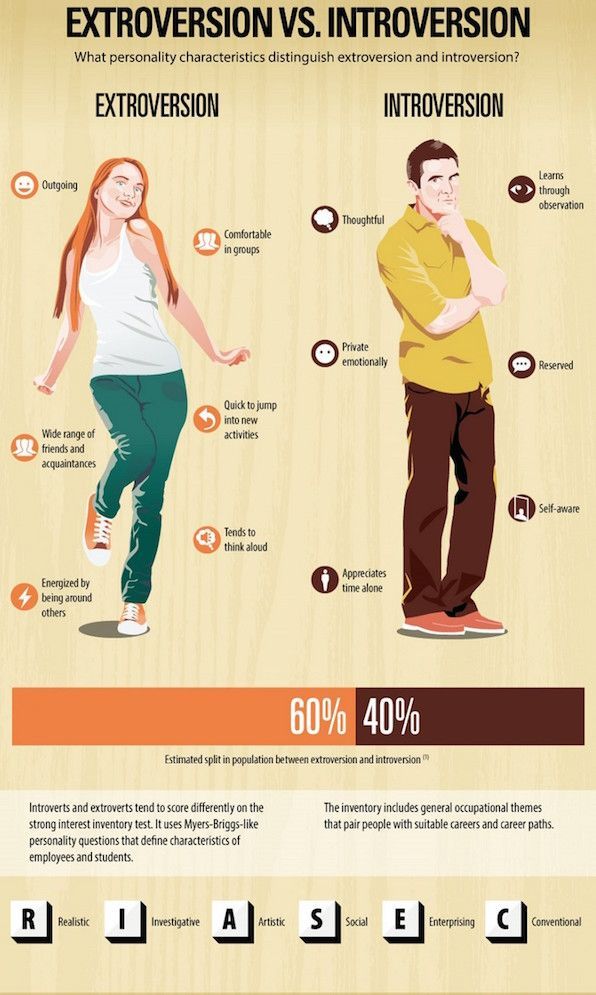
For introverts, those sports that require awareness and full involvement in the process are more suitable. This includes yoga, running, stretching. These activities help to immerse yourself, which is characteristic of closed personalities. As for team sports, here introverts can also show themselves. In practice, leaders and captains of an introverted character warehouse are often encountered. The reason for this is their restraint and endurance, which instill confidence in the team.
For extroverts, active and team sports are more suitable, such as football, basketball and volleyball. You can also highlight crossfit, cycling, functional training, various dance styles and other activities. The listed activities require involvement in the group and focus on external factors that occur during training. This also includes spectacular sports competitions, such as rhythmic gymnastics and figure skating, where there is a direct “communication” between the spectator and the athlete.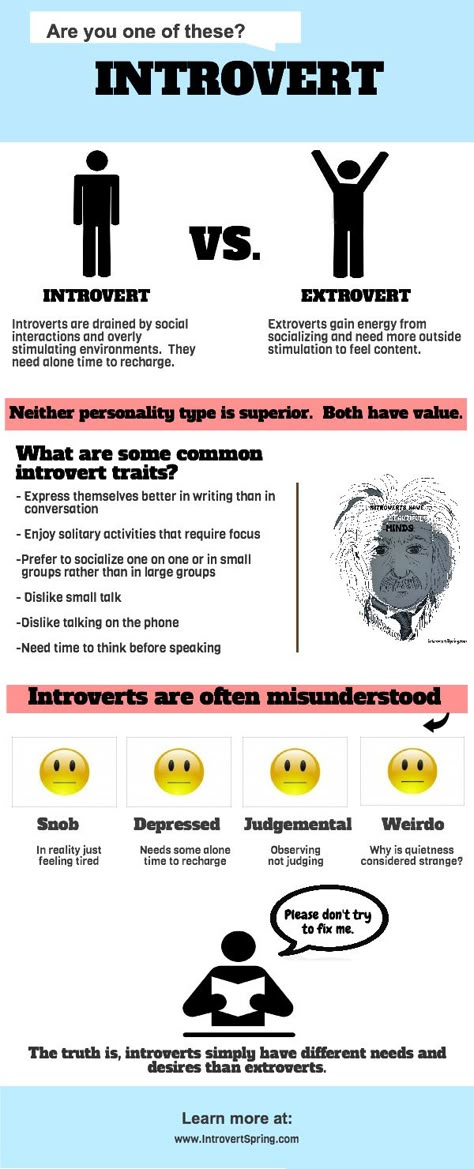 An open personality type can also give preference to running, having achieved good results in it.
An open personality type can also give preference to running, having achieved good results in it.
There are also related classes that will suit both extroverts and introverts. These are martial arts - boxing, kickboxing, karate. They combine both communication with an opponent and a high level of concentration.
When choosing the right type of training for yourself, do not forget that pure extroverts and introverts are quite rare. Usually a person combines the features of both types, depending on the current circumstances and atmosphere, so it is impossible to clearly determine what will suit one or another individual. Everything is learned by trial and error, the main thing is to try and find your own, and teachers in physical education and sports will help you with this!
Introverts and sport - Community of introverts! — LiveJournal
Citizens are introverts! And now I will raise such a topic - we discussed it, but not in detail: how do we play sports? And are there significant differences between extra- and introverts in this area?
Let's go point by point.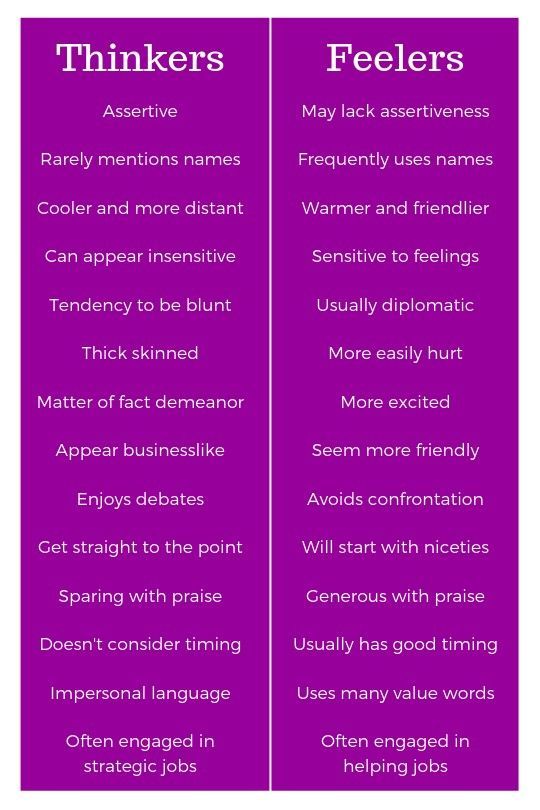
1) Choice of sport.
I really don't like team sports - all sorts of volleyballs, footballs and other "group sex". But martial arts - yes, this is it, mine: one on one, you make decisions only yourself, you rely only on yourself, pain, failures, understanding what and how to do - only yours, and not blurred by the crowd of "teammates" ". An earlier discussion showed that introverts prefer single (running, walking, diving, swimming, barbell, yoga, cycling) or "pair" sports (martial arts, figure skating, dancing, chess), and team or frankly dislike , or dealt with them so ... casually. So all the same, apparently, "extra-" and "introverted" preferences exist.
2) Public training. That is, the ability and desire to engage in visible activities.
It is clear that martial arts training cannot be done in one face, and your successes and failures are visible, at least to the coach, and if you are especially suspicious, you will think that the whole group is staring at you.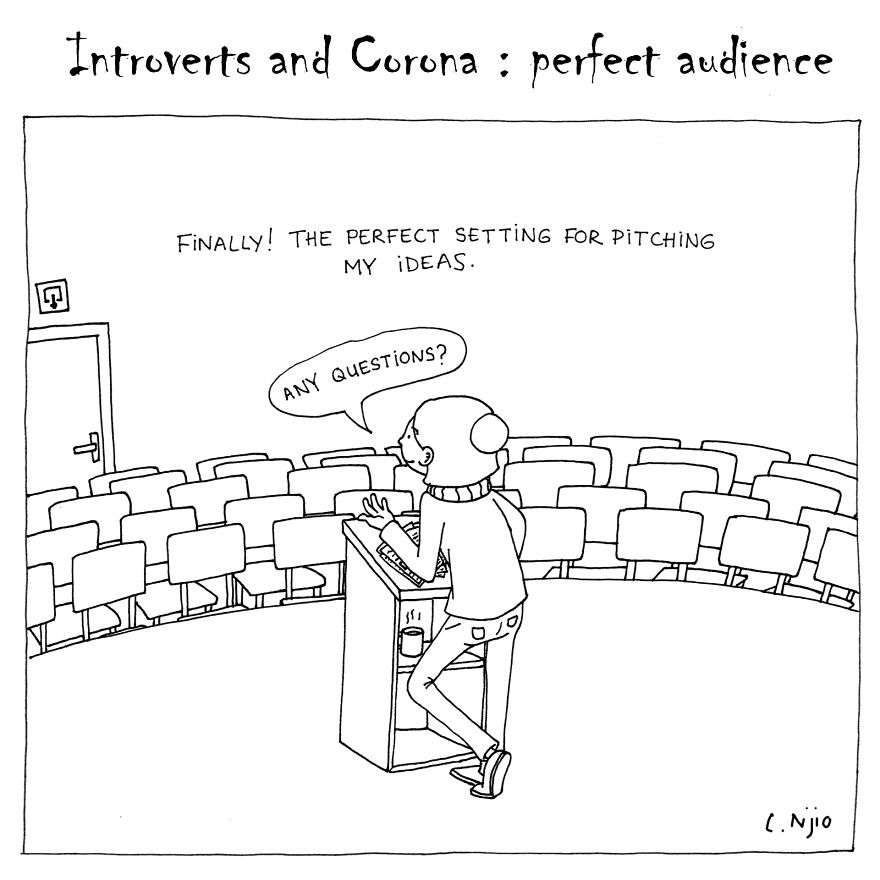 In principle, this feeling is successfully suppressed by the mind.
In principle, this feeling is successfully suppressed by the mind.
But the question is: how comfortable are we to practice in the presence of other people?
To be honest, not really for me. I have long been accustomed to the martial arts hall, let's say, and even learned not to remember how old I am, working with people 1.5 times younger than me :) - in general, I no longer complex about this. But I can’t even imagine if I can ever go to the hall with pieces of iron.
Here Efim Shifrin posted a wonderful video on his blog with himself in the hall. So there is not only that the shooting is going on and other citizens are walking around - there is also a coach hanging over the soul and grazing every movement (yes, I know that this is how it should be - but it would bother me :)). And if the sport is difficult, if you are doing an exercise on the verge of strength - at this moment I have one desire: to close myself so that no one sees me. And then the coach hangs out next to you, looks in plain text at your panting .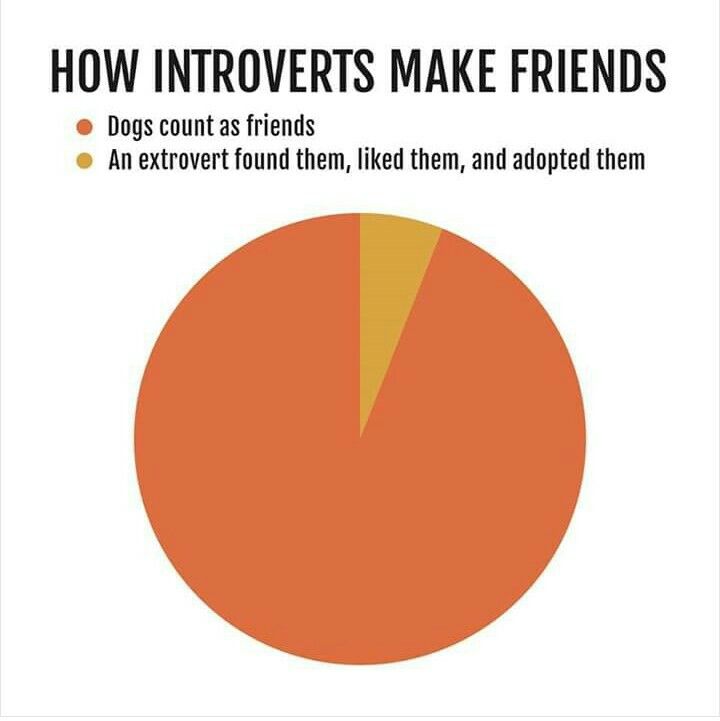 .. Brrr. In general, I prefer to finish additional loads at home or in street conditions - without partners and an audience around.
.. Brrr. In general, I prefer to finish additional loads at home or in street conditions - without partners and an audience around.
But I have a friend - she is an extrovert. For her, going to the hall with pieces of iron is like going out into the world. It’s cool for her that they look at her, she even likes it, she feels herself in the company and it doesn’t matter if she does well or not, for her the hall is a necessary dose of someone else’s attention. It's attention.
3) From paragraph 2 follows the question of the ability to exercise independently at home , where there is no coach, no audience. I have a feeling that it is easier for introverts than for extroverts to choose the right training system and give all the best to them without external stimulants and kicks. Introverts do not need external approval - they themselves are able to objectively evaluate their efforts, results and force themselves to move on with increasing loads. Are extroverts capable of similar actions - in conditions where there is no outside attention, approval, support?
4) Publicity of the competition.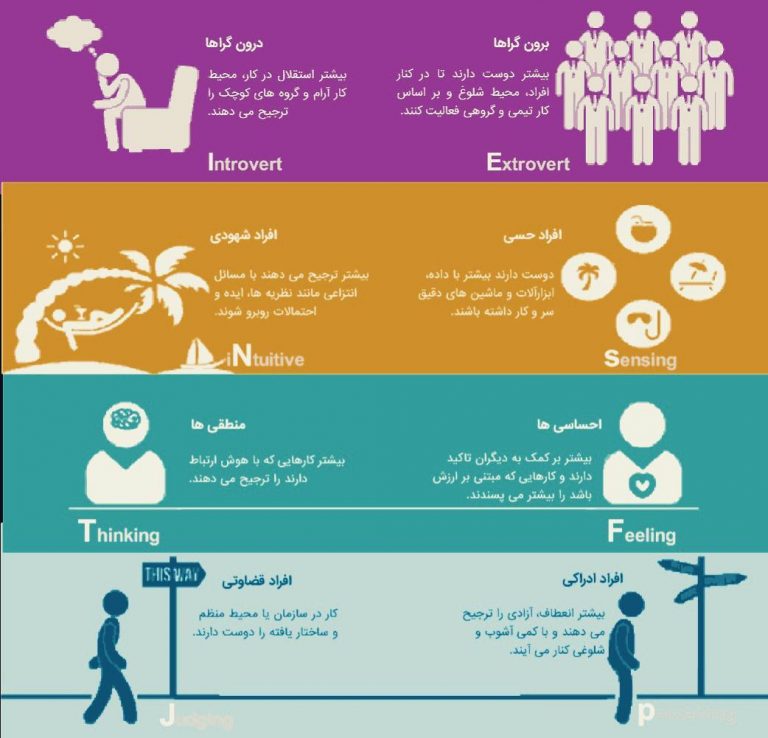 That is, the ability to no longer train, but to pass, to compete with a large crowd of people.
That is, the ability to no longer train, but to pass, to compete with a large crowd of people.
I always have hellish jitters at competitions and submissions. I don’t like public attention to my person at all - and the need to go out to the public is of course annoying. But then again - it’s necessary, it’s necessary, of course I’m going out. And only then, while working with a partner, I catch my buzz, because in the process I don’t care about the entire audience of the world.
But there are people who get high from the public demonstration of their beauty... Not from actions, but from the publicity of the process! I think this is more typical of extroverts.
5) Question of sports motivation. Who is more motivated/charged to go in for sports - an introvert or an extrovert?
It is clear that we are all very different, the reasons for playing sports are also different for everyone ... But under equal conditions, for example, extra 10 kg have grown, but there is no time / money for classes - who will be the first to solve the issue of lack of funds and hours and start do sports (whether at home or in the gym): introvert or extrovert? And who will last longer at the first difficulties?
On the one hand, an extrovert makes decisions faster and doesn’t give a damn about all sorts of nuances, such as the publicity of visits to the gym.